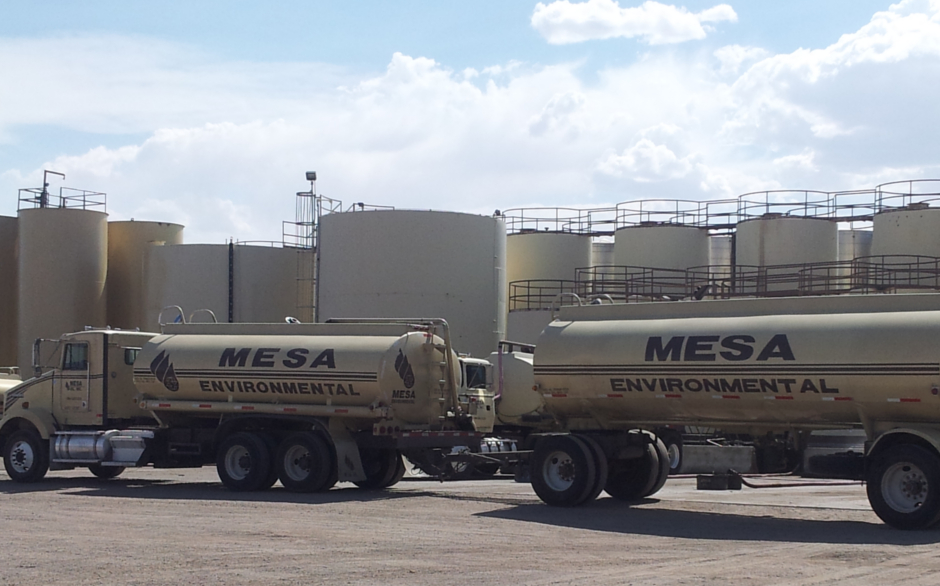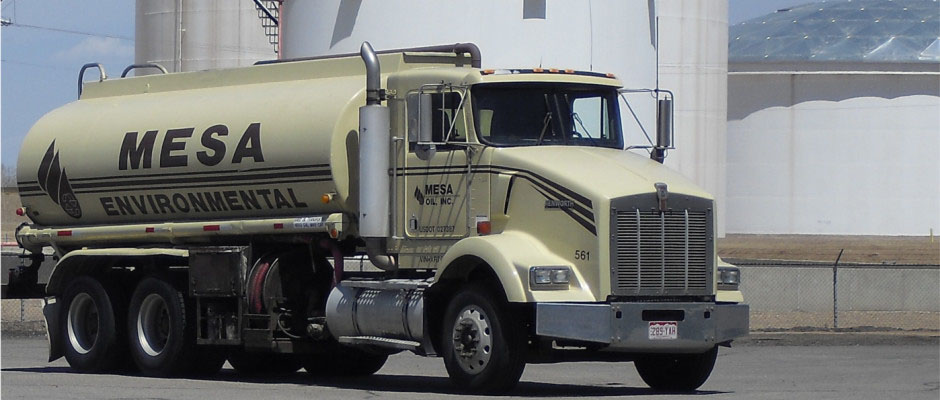Managing antifreeze and coolant correctly is one of the most overlooked aspects of industrial fluid stewardship. Many operations assume disposal is the easiest path—but disposing can carry hidden costs in safety, compliance, and sustainability. In a world where industrial recycling is gaining urgency, businesses that handle glycol-based coolants or heavy‑duty antifreeze must treat these fluids as valuable resources—not waste.
Mesa Environmental offers dedicated service for collecting and recycling used antifreeze and coolant under our Oil Filters & Antifreeze/Coolant services page. The goal: keep fluids out of the landfill, avoid contamination, and close the loop through proper industrial recycling.
The Hazards of Neglecting Fluid Disposal
Industrial environments generate significant volumes of glycol‑based coolants and antifreeze used in HVAC systems, manufacturing chillers, engine radiators, and heavy‑equipment heat‑transfer systems. If these fluids are simply drained, mixed, or dumped rather than recycled, the risks multiply:
- Contaminants such as heavy metals and glycol breakdown products can build up and become hazardous wastes.
- Improper storage or mixing can lead to corrosion in systems, chemical instability, and worker exposure.
- Disposal means missed opportunity to recover value, plus increased liability.
According to one industry source, implementing coolant recycling measures in manufacturing can reduce disposal costs by up to 90 % and cut new fluid purchases by as much as 75 %. For industrial operations, that makes the resinous, sloppy fluid leftover anything but trivial—it’s a potential savings (and liability avoidance) opportunity under the banner of industrial recycling.
Why Antifreeze and Coolant Recycling Is a Smart Move
In the context of industrial recycling, choosing to recycle rather than dispose of antifreeze and coolant offers both practical and environmental benefits. It reduces the need to purchase new fluids by restoring used coolant to usable condition, which significantly lowers operating costs. It also ensures regulatory compliance by reducing the chances that used fluids are classified as hazardous waste—especially when contamination is properly managed.
From an environmental standpoint, it also decreases the demand for raw chemicals and diverts toxic fluids from landfills. For operations, cleaner coolant improves equipment performance and reduces the risk of corrosion or failure due to degraded fluid. When a company engages Mesa’s services, they benefit from scheduled pickups, compliant storage solutions, and responsible handling that aligns with sustainability goals.
How Mesa Simplifies Industrial Recycling
Mesa Environmental’s approach to recycling of antifreeze and coolant is designed to simplify the process for businesses of all sizes. Here’s how:

- Collection & preparation – Equip your facility with properly labeled containers (e.g., 55‑gallon drums) for used coolant/antifreeze. Mesa provides this option.
- Scheduled or on‑demand routing – Whether you generate fluid continuously or periodically, you can arrange recurring route service or a one‑time pickup when containers are full.
- Proper processing & recycling – The collected fluids are handled in Mesa’s recycling systems, ensuring that coolant and antifreeze are reused or properly treated under safe procedures.
- Documentation and compliance – You receive service tracking and records that support your environmental, health & safety, and compliance audits.
By managing your coolant + antifreeze streams with an industrial recycling partner, you reduce storage risk, lower disposal cost and align with modern sustainability practices.
Best Practices for Safer Coolant Management
To get the most out of recycling while reducing risk, consider these steps:
- Clearly label and segregate coolant/antifreeze from other fluids (like oils or solvents).
- Store fluids in sealed containers indoors or under cover to prevent contamination and mixing with rain or debris.
- Keep schedules and volumes consistent so you avoid over‑accumulation, which leads to unsafe conditions.
- Work with a provider experienced in coolant/antifreeze collection and industrial recycling like Mesa Environmental.
- Review and track service records and manifests to protect your facility from liability or regulatory exposure.
Making Smart Fluid Decisions That Pay Off
In industrial settings, antifreeze and coolant aren’t simply used fluids—they’re regulated materials with value when managed correctly. Choosing industrial recycling over disposal not only protects the environment, it saves money, reduces liability, and improves operational reliability. With Mesa Environmental’s dedicated services for collection and recycling, you can stop treating these fluids like a cost center and start treating them like an asset.

